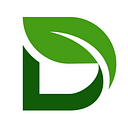Dimitra’s Commitment to Advancing SDGs: Zero Hunger
By 2050, we will need to feed 9.7 billion people. In 2021, over 1 billion people went to bed hungry every night. In the past five years, this problem has increased, not decreased.
Sustainable Development Goals (SDGs) are a series of objectives set by the United Nations (UN). The UN acknowledges that 17 priorities are imperative to obtaining sustainable development worldwide.
At Dimitra, much of the work we do aligns with these goals.
The #2 SDG is Zero Hunger, a goal that Dimitra is trying to impact.
Zero Hunger SDG
Each day, many millions of people suffer from food insecurity and inadequate food. The crisis can be life-threatening for whole communities, especially victimizing children as their growth and development are affected.
Food shortages may feel completely foreign to people in developing countries, but they are in fact, quite common, and the problem is growing.
Why are Food Shortages Getting Worse?
A few dynamics have heightened the tension around food provision:
- Increased global conflict, including the war in Ukraine, limits distribution and disrupts supply chains
- Resource depletion, including the depletion of freshwater reserves and natural resources, is a consequence of harmful industrial agriculture practices
- Climate change, as weather-related events have had record-breaking impacts on crop yields in the last two years, is a reality forecasted to continue
- High rates of food waste threaten to intensify food insecurity around the globe
This last point is something we are actively working to solve through a project and partnership with Abrafrutas in Brazil.
Advancing Zero Hunger by Reducing Food Waste
Dimitra has a global team of experts in everything from technology to science to development and more. We always seek out in-country partners who can aid in implementing new processes. That’s how we connected with Abrafrutas to provide traceability solutions for fruit in Brazil.
Our goal in Brazil is to apply Dimitra tech to digitize and automate the farm-to-fork process, improving food safety and reducing food waste perpetuated by inefficiencies in the supply chain. Supply chain automation using blockchain is a powerful way to streamline export processes, which are economically important to farmers. Blockchain technology can also be used to automate the transmission of regulatory and shipping documents, compliance documents, and national and international food certification documents.
Using IoT “Track and Trace” solutions, stakeholders on both sides of a transaction gain insights into real-time data, following the digital footprint of consumer goods. The net outcome of these efforts is minimizing produce loss and maximizing the exchange value for farmers.
Our work in Brazil is also putting the Connected Farmer Platform into the hands of farmers. Through the various modules on this application, farmers can improve food quality and yields and be a part of the end-to-end farm-to-fork traceability.
Read more about this project here: Traceability Solutions for Fruit in Brazil.
Farmers are up against a lot, and smallholder farmers are the most vulnerable to food shortages, often living one crop or season away from disaster.
Platforms for Sustainable Food Production
At Dimitra, we take the SDG of Zero Hunger seriously, working toward this goal with great optimism. We believe in enlisting the help of all players and proactively coordinating efforts with governments, farming cooperatives, agriculture corporations, NGOs, for-profit organizations, and more. Together, we are developing and deploying innovative digital technologies that will play a key role in eradicating hunger for good.
Dimitra is actively making strides to build toward our goal of Zero Hunger advancing around the globe. The purpose-built solutions Dimitra provides give farmers both tools and training to support sustainable food production. This has the happy byproduct of shaping their businesses’ long-term viability.
Our CEO Jon Trask puts it this way: “Every smallholder farmer, regardless of economic status, should be able to benefit from simple, beautiful, and useful technology.. because when farmers thrive, economies thrive.”
Want to dive deeper into how artificial intelligence, the Internet of Things (IoT), and giving farmers mobile access to sophisticated tech make progress toward Zero Hunger? Read a research overview of Platforms for Sustainable Food Production here.
Visit www.dimitra.io to preview our products and read case studies of how Dimitra is at work around the world.
